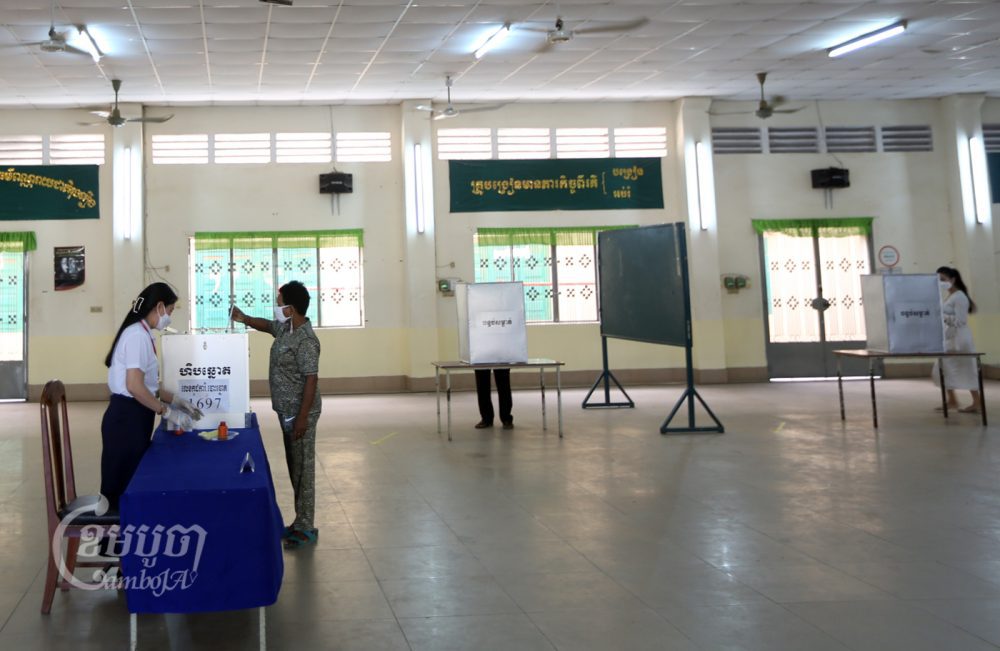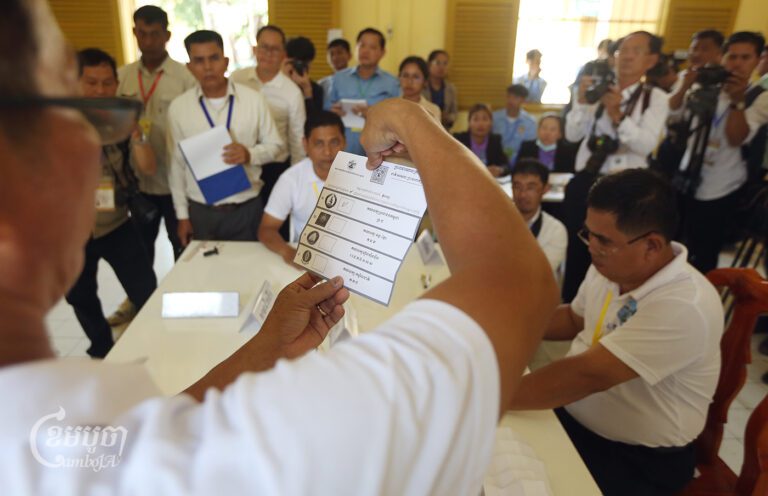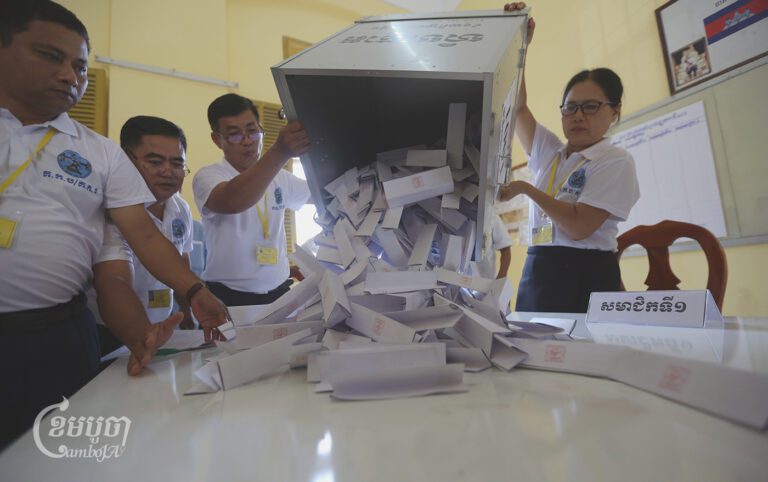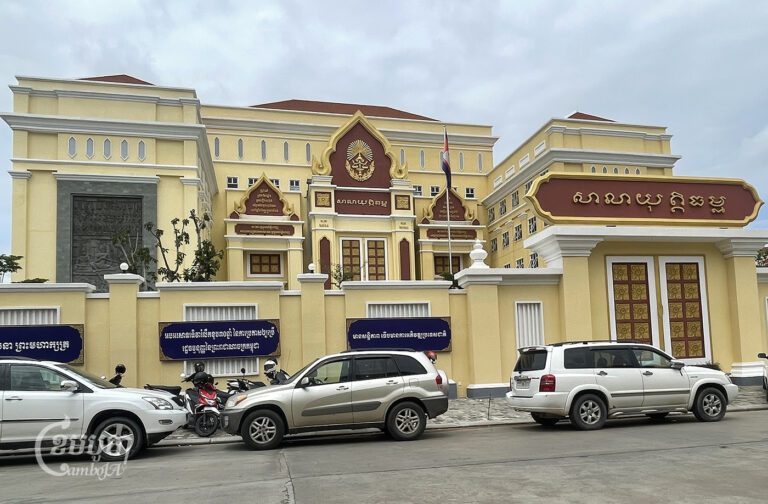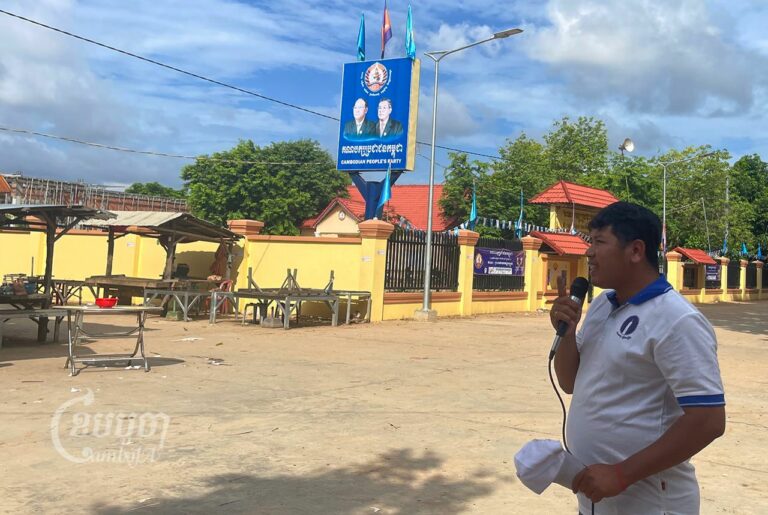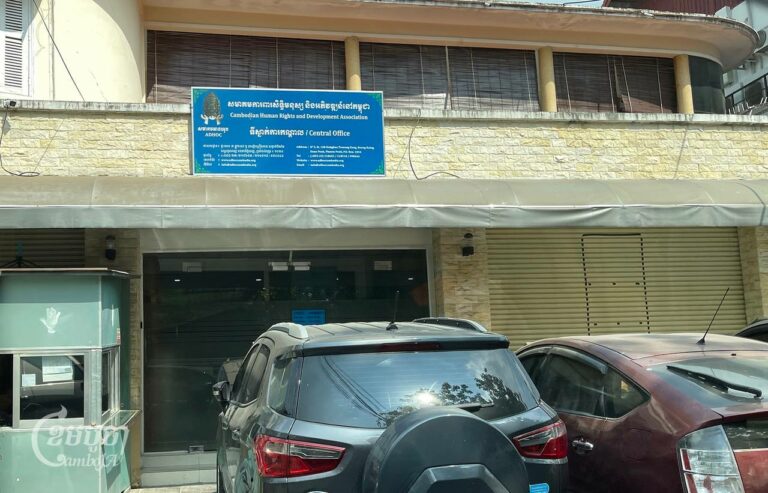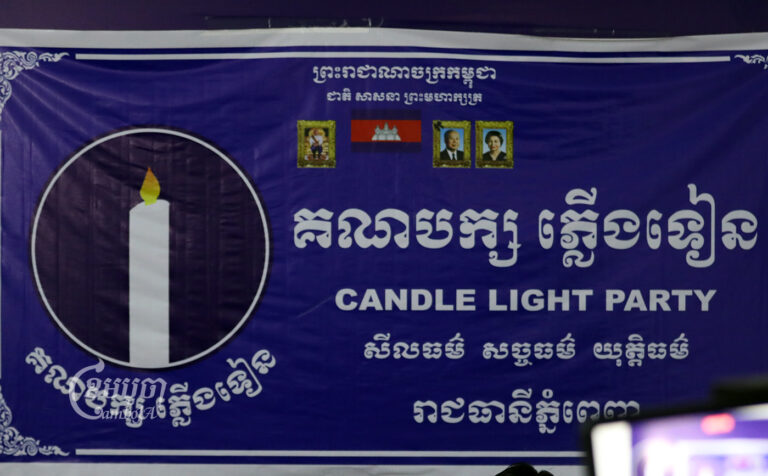Election observers said they witnessed several irregularities during Sunday’s commune council election, including the presence of armed forces at polling stations, inadequate efforts to ensure voters were properly registered, and vote counters refusing to allow observers to watch the process.
Five organizations — the Committee for Free and Fair Election in Cambodia (Comfrel), Youth Resources Development program (YRDP), the People Centre for Development and Peace, Adhoc, and Central — on Tuesday released a preliminary report detailing irregularities their monitors witnessed at the June 5 polls.
“People can’t vote because they can’t find their names, and identification documents were different from the data on voter lists, including expired ID cards,” read the statement.
In addition, during the ballot count, at some polling stations observers were banned from entering or not allowed to take photos. Some stations closed the windows while counting ballots to block people from watching, while others failed to publicly display the results after counting.
According to preliminary results released by the National Election Committee (NEC), of the 17 political parties that took part in the June 5 polls, only the Cambodian People’s Party (CPP) and Candlelight Party won commune chief positions—with the CPP taking the lion’s share.
The ruling party won 1,648 out of a total 1,652 commune chief positions, while the Candlelight Party won just four—three in Kampong Thom provinces and one in Kampong Cham province.
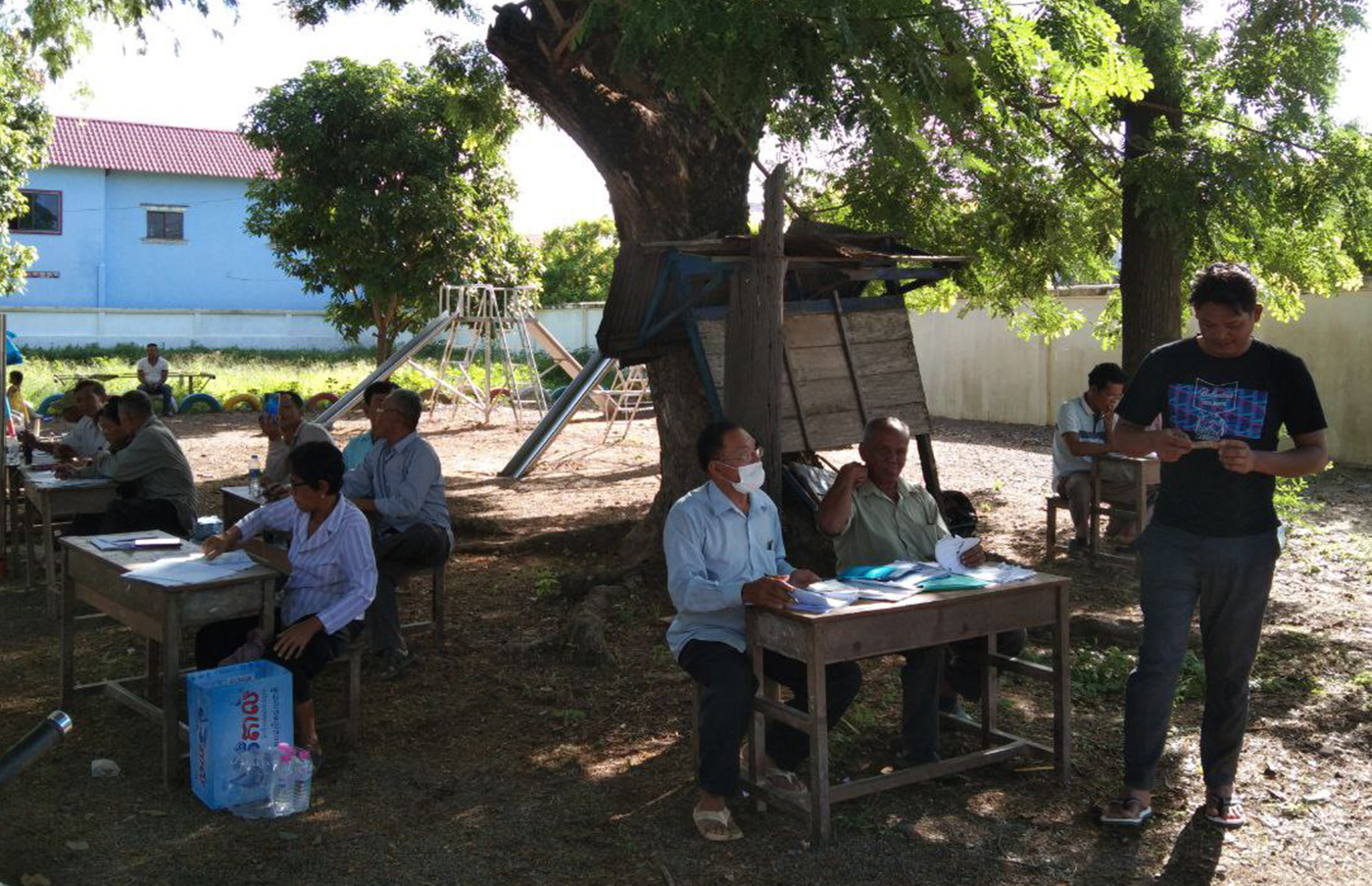
Moeun Tola, executive director at Central, said the presence of authorities or commune chiefs at polling stations — a violation of the Election Law — was particularly problematic due to the possibility of voter intimidation.
“Voters feel that the secret ballot may be known,” he said, adding that is why the election law bars those who have no obligation to be at the polling station from staying — especially the authorities and candidates.
He said that missing voter names could be related to the inactivity of the authorities in distributing election information cards to the people.
Some voters “lost their right to elect their representatives and that could affect the final outcome,” he said. In cases of voters who could not find their names or didn’t vote due to the loss of their ID cards, more should have been done by local authorities to ensure they were properly registered, he said.
“For this mandate, I notice that the authorities have not distributed information cards to the people.”
“As a result, we do not see any change in the electoral reform process,” Tola said. “We are concerned that the 2023 election may be an election that is not fair, free, and transparent.”
Sok Eysan, ruling party CPP spokesman, rejected the findings of the five organizations and claimed soldiers and police had a right to be posted at polling stations.
“Security forces have their roles in guarding public security, and at the same time, security forces have an obligation to vote as citizens,” he said.
Eysan said that security forces were needed to protect public security because an outlawed rebel group planned to destroy the election process.
“The government has found evidence that those groups have planned to destroy the election, so we have to increase security forces to safeguard security in all polling stations to prevent their tricks,” he said.
“Those organizations have negative thoughts on the government, and they weren’t satisfied with the past elections,” Eysan added, though he did not explain who the groups were. He noted that other national and international observers reported the election to have been conducted smoothly, without violence or intimidation.
Adhoc president Ny Sokha said the issue was not whether authorities and security forces came to vote, but whether they remained on the premises — which could be viewed as a form of voter intimidation.
“The problem is that authorities record people’s names when they come to vote, which is not their responsibility,” he said. “It has affected the mood of voters, making them concerned and fearful.”
in addition to the irregularities surrounding the vote itself, the groups were concerned about the vote counting process — which is meant to be publicly observable.
“This time, we observe that some of the offices, the majority of those are in the pagodas and school, have their doors closed, the fences closed, and the guards are not letting anyone enter or leave the compound,” he said.
In light of the many irregularities uncovered, Sokha said the groups urged the NEC to investigate.
“Anyone who violates the neutrality principle must be punished and cannot continue to do so,” he said.
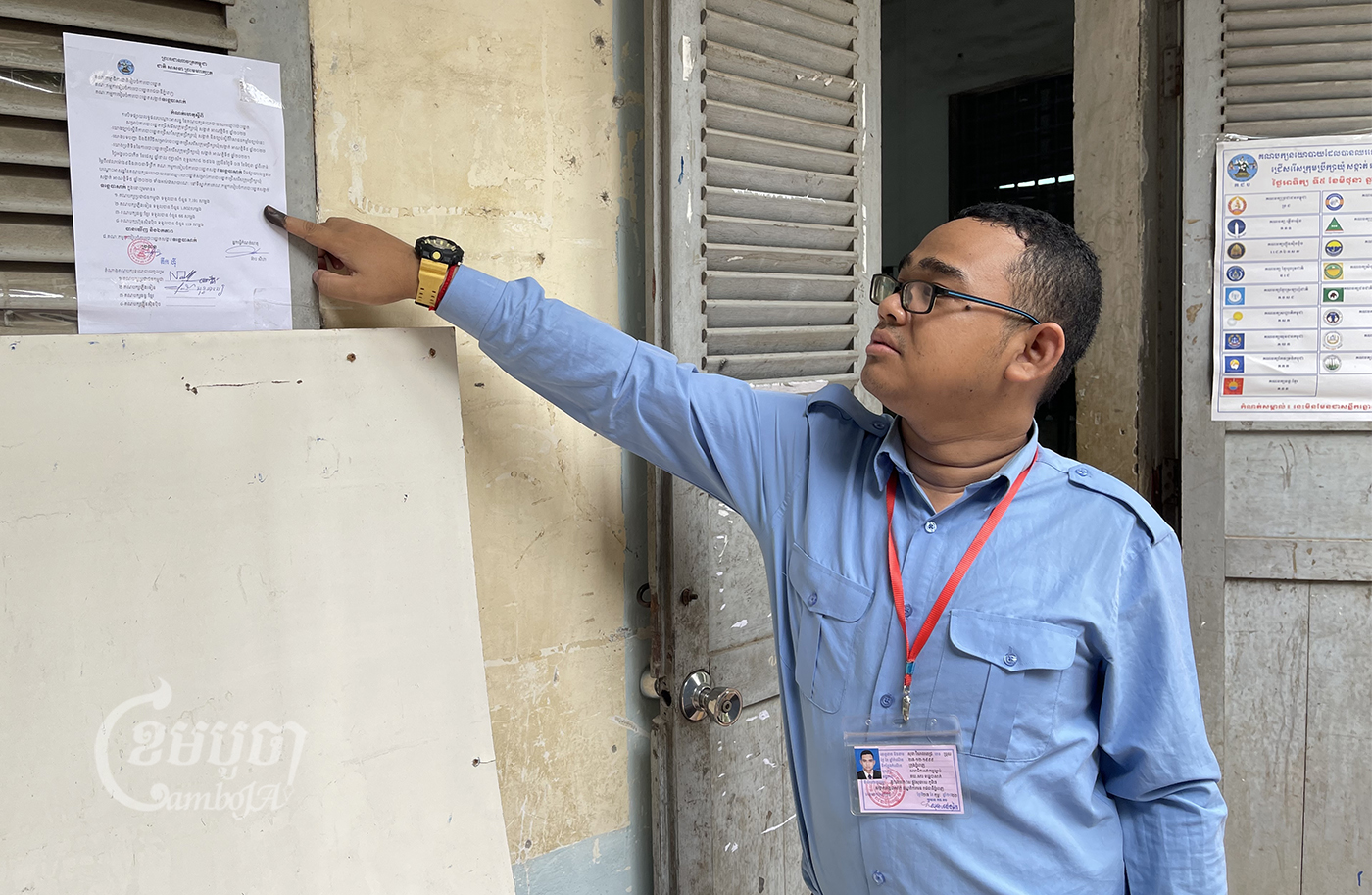
Hang Puthea, a spokesman for the NEC, said that a small number of irregularities existed in all elections, but denied that they were enough in number to affect the outcome of the vote. He said if the NEC learned of any serious irregularities it would open an investigation.
“Whatever the perception of a group, it is their right to express their opinion,” he said.
Puthea said that of the nearly 20 percent of people who did not participate in the elections, most were citizens living and working abroad. He added that the NEC has always announced the date of the election far in advance and given sufficient education to allow voters to register and prepare their documentation.
“Those who do not have enough documents, will not be allowed to vote,” he said. (Reporting by Khuon Narim, Kheang Sokmean, Sovann Sreypich, and Soeung Nimol)


